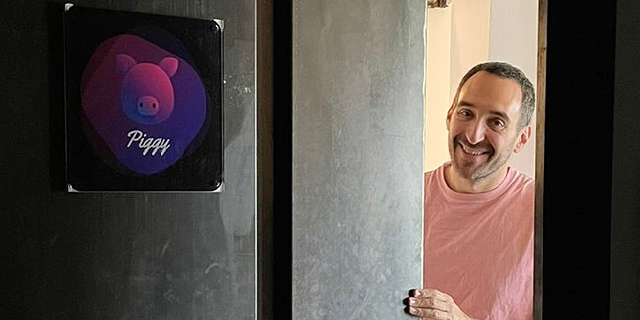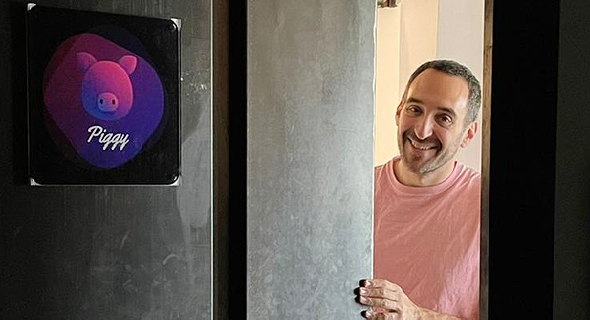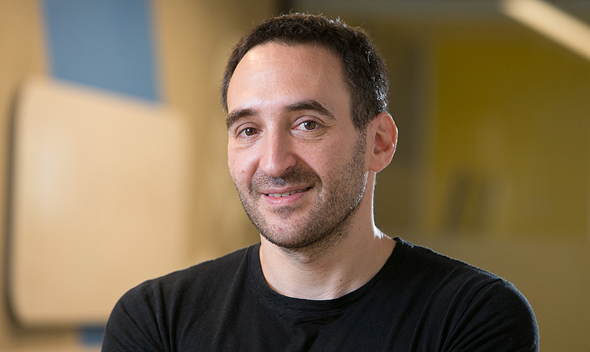
Round B
A chance encounter got me to open the door to the idea of remote work
Shaul Olmert shares his internal deliberations on the pros and cons of working from home
Shaul Olmert | 18:07, 24.12.20
This morning, while riding my bike to the office, I met Zohar along the way. We all have a Zohar in our lives, a person we haven’t seen in 30 years, but still immediately recognize when we cross paths, even when half of our face is covered. So we stopped for a brief chat, calling up old memories from Jerusalem in the 80s. We gossiped about the friends we kept in touch with, we kept silent for a moment recalling those who are no longer with us, and departed with the obligatory joke that when we next meet we’ll be approaching our late seventies. But a moment before we pedaled off, Zohar stopped to ask me what was in the wrapped parcel that I was carrying.
“It’s a sign for my office door,” I explained proudly and pulled out of the bubble-wrapped package the designer sign I ordered online to be delivered to my home since the delivery person would have a hard time locating our office without a sign.
“A sign for the office door? What for?” Zohar wondered. It reminded me that Zohar always had a tendency to ask trivial questions with great wonderment.
“You know, so that people can find our office,” I explained patiently.
“An office?” Zohar insisted. “What for?”
I told you he is an expert in asking annoying questions. Zohar told me that he also works at a startup, but wasn’t headed there, rather he was headed home to start working after a session at the gym. For the year and a half he had been working at his company, long before a bat in Wuhan Province sent the world into lockdown, all employees had been working from home, meeting in person only once every few weeks, usually in the evening for a social event.
Work from home didn’t start with the Covid-19 pandemic but definitely went mainstream due to restrictions on travel and gatherings. Much has been said about the pros and the cons of the various models and the need to find a golden path — some sort of ‘hybrid model’ that maintains the shared workspace, but also allows people to find their own balance between hallway conversations and joint lunch orders and the comfort of lying in bed in their underwear while petting their cat during a morning team meeting.
These days, as we wait to find out whether we are even allowed to work from the office or not, we hear of many companies that decided to transition to remote work even when there are no restrictions in place. The CEOs of many companies say their employees have asked to work exclusively, or at least mostly, from home and that doing so doesn’t hamper their productivity, in some cases even boosting it. The lockdowns taught us all that when there are no other choices, working from home is a reasonable option. In the short term, at least, it appears that organizations have learned how to function under the restrictions and put in place processes and practices that enable work to be done even when everyone’s secluded in their homes. The question is, what will the long-term ramifications be. What will be, for instance, of the team’s sense of togetherness and belongingness? To what degree can you identify the personal needs and hardships of an employee you barely meet with directly? How do you keep up morale over time? And so on. It is too early to provide answers to all these questions and only time will tell what the long-term impact of the new work structure is. It’s possible that in the future most organizations won’t have an office. Perhaps companies will use workspaces on an ad hoc hourly basis, initiate social meetups between colleagues after work hours, learn how to provide a virtual alternative to the hallway conversations, and install communication systems that are able to not only convey information between team members but also to connect them on an emotional level. For now, we’re seeing how our work habits are evolving, we are adopting new methods and challenging ourselves to try unfamiliar, flexible patterns.
Related Stories
Shaul Olmert is a serial entrepreneur and the co-founder and CEO of mobile app developer Piggy. He formerly founded interactive content company Playbuzz Ltd. You can find his previous columns here

